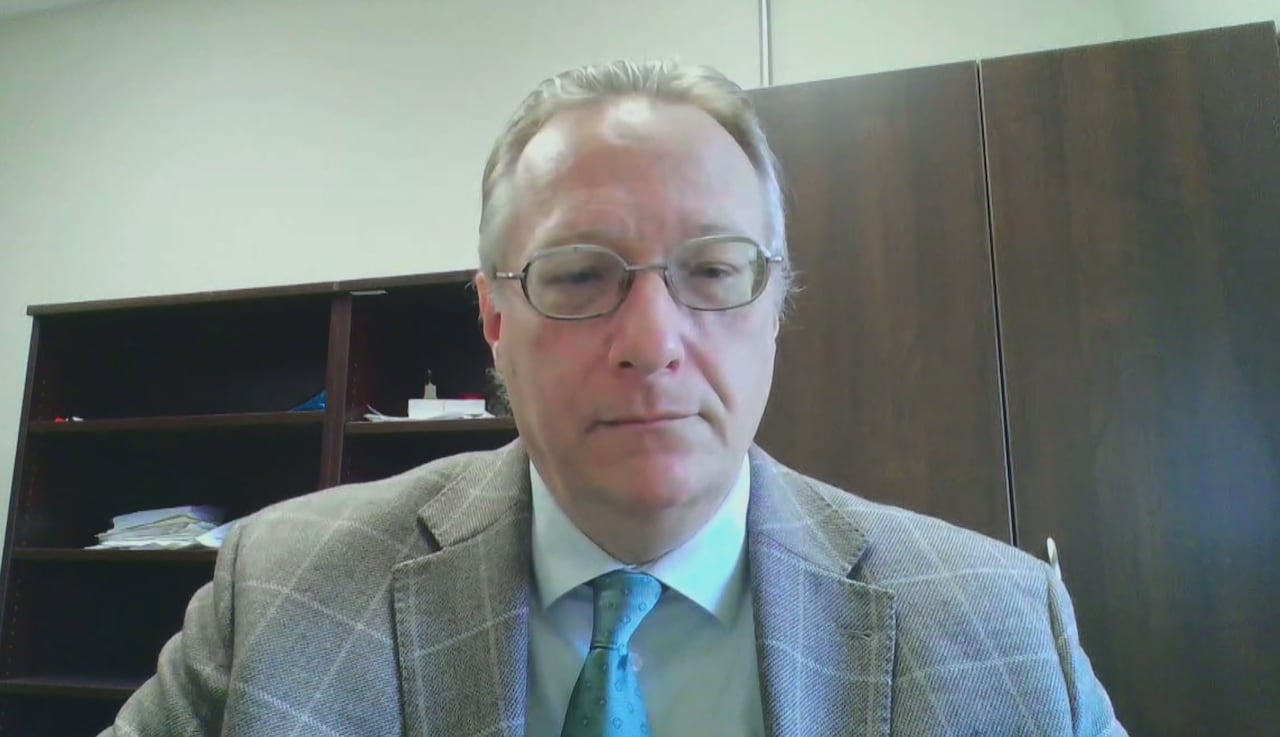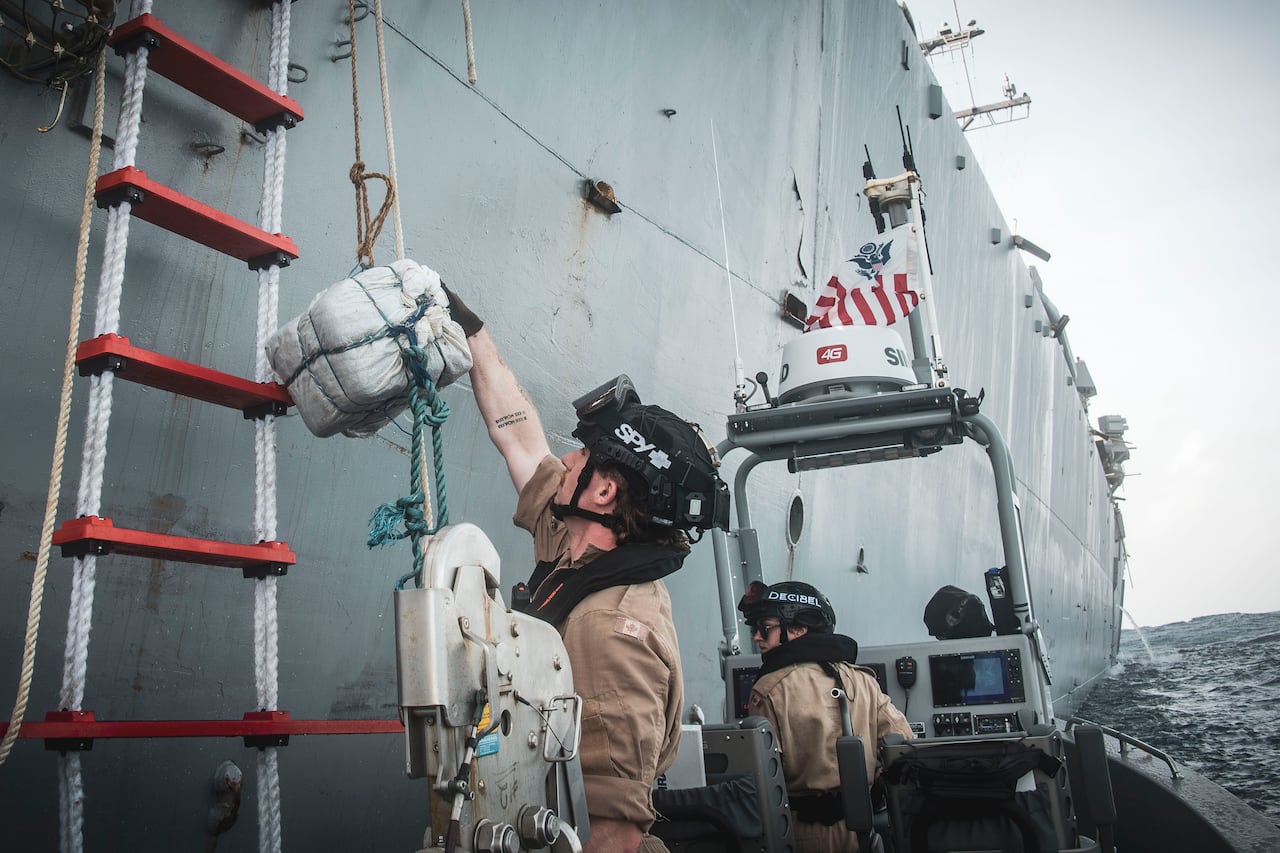Canada’s Department of National Defence says it will continue a long-standing operation with the U.S. Coast Guard to capture drug smugglers in the Caribbean, despite a string of deadly U.S. airstrikes in the region.
Operation Caribbe — ongoing since 2006 — sees the Royal Canadian Navy and Royal Canadian Air Force partner with the U.S. Coast Guard to find and stop suspected drug boats in the Caribbean, taking any detainees to the U.S. to face prosecution.
The U.S. Air Force has taken a much different approach in recent weeks, bombing four suspected drug boats and killing 21 people.
Canadian officials are now distancing themselves from those attacks, saying they have nothing to do with Canadian military or intelligence personnel in the region.
“It is important to note that Canadian Armed Forces activities under Operation Caribbe, conducted in co-ordination with the United States Coast Guard, are separate and distinct from the activities you describe involving other branches of the United States military,” reads a statement from Department of National Defence spokesperson Cheryl Forrest.
Operation Caribbe is Canada’s contribution to a wider, multinational mission called Campaign Martillo, involving 14 countries from the Americas to Europe.
Tim Addison, director of naval affairs for the Naval Association of Canada (NAC), said he understands the distinction the department is trying to make, but it’s not enough to alleviate his concerns about the strikes and where the U.S. could go from here.
Some scholars have questioned the legality of the strikes, while Human Rights Watch called them “extrajudicial killings.”
“Were they illegal?” Addison said in an interview with CBC News on Wednesday. “Should Canada continue to contribute to Operation Caribbe if in fact it seems to be going down the path towards illegal operations?”
The NAC is a national group of retired and serving naval personnel, advocating for a stronger navy. While the group doesn’t typically weigh in on current operations, Addison said this was a “bigger issue.”
“This involves the law of armed conflict and the rules of waging war between two states,” he said.
Addison — who spent 34 years as a naval officer before working for the joint staff in Ottawa — said the Canadian government should be seeking answers from the United States on a long list of questions involving the intel and rationale behind the strikes.
“Canada needs to understand that reason and then make a judgment call as to whether they think they should continue with Operation Caribbe, or perhaps make a statement on where they stand on these activities.”
The strikes come at a critical time between Canada and the United States, as the countries negotiate a new trade agreement.
Addison said this has left the Royal Canadian Navy “between a rock and a hard place” in the Caribbean.
Canada must avoid Venezuela, says professor
Eric Ouellet, a defence studies professor at Canadian Forces College and the Royal Military College of Canada, agrees that the strikes have put Canada in an awkward position.
But he believes it’s one they can navigate without stopping all future Caribbean deployments.
Ouellet said there’s a fear that Canadian personnel could gather intelligence that would end up being used in lethal attacks against suspected traffickers without due process.

Those concerns can be alleviated, he said, if Canada stays as far away from Venezuela as possible.
“I think it’s a concern in terms of double-checking that they are not sending intelligence that may be used on an operation that, I would say, that may be illegal,” Ouellet said.
“But the concerns should be relatively tempered by the fact there are many drug-smuggling activities in the Caribbean and Venezuelans [are] just one [part] of them.”
Ouellet said Canadian assets are well equipped to combat other issues in the region, such as arms smuggling around Haiti.
Canada has sent two ships to the Caribbean this year, with the most recent — HMCS William Hall — returning home in early July.

Ouellet believes ending Operation Caribbe now would be a loss for Canada and the United States.
“There’s different ways to be away from the complication of dealing with Venezuelan ships that we can envision,” he said. “There’s ways to make it work.”
Detainees low-level cartel members
Trump, along with Secretary of State Marco Rubio and Secretary of War Pete Hegseth, have said the attacks were targeted against designated terrorist organizations — “narco-traffickers” from groups like the Venezuelan gang Tren de Aragua.
The U.S. has blamed Venezuela — particularly its president, Nicolas Maduro — for an influx of drugs in recent years. The strikes are the latest escalation in tensions between the two countries.
CBC News embedded on Operation Caribbe in February 2024, as HMCS Margaret Brooke patrolled an area near the Dominican Republic, serving as floating platforms for American law enforcement personnel who have jurisdiction to detain suspected traffickers in the Caribbean Sea.
U.S. Coast Guard Rear Admiral Mark Fedor was in charge of the entire operation at the time, telling CBC News the people they were capturing were typically low-level foot soldiers for the cartels that rule the cocaine industry.
Aside from securing prosecutions, they were also looking to get information from suspects on the inner workings of their organizations.
“It’s not just the El Chapos of the world that we’re concerned about,” Fedor said. “It’s the logisticians, it’s the financiers. It’s the people who make the network work.”
Operation Caribbe has nabbed 123 metric tonnes of cocaine since 2006.






